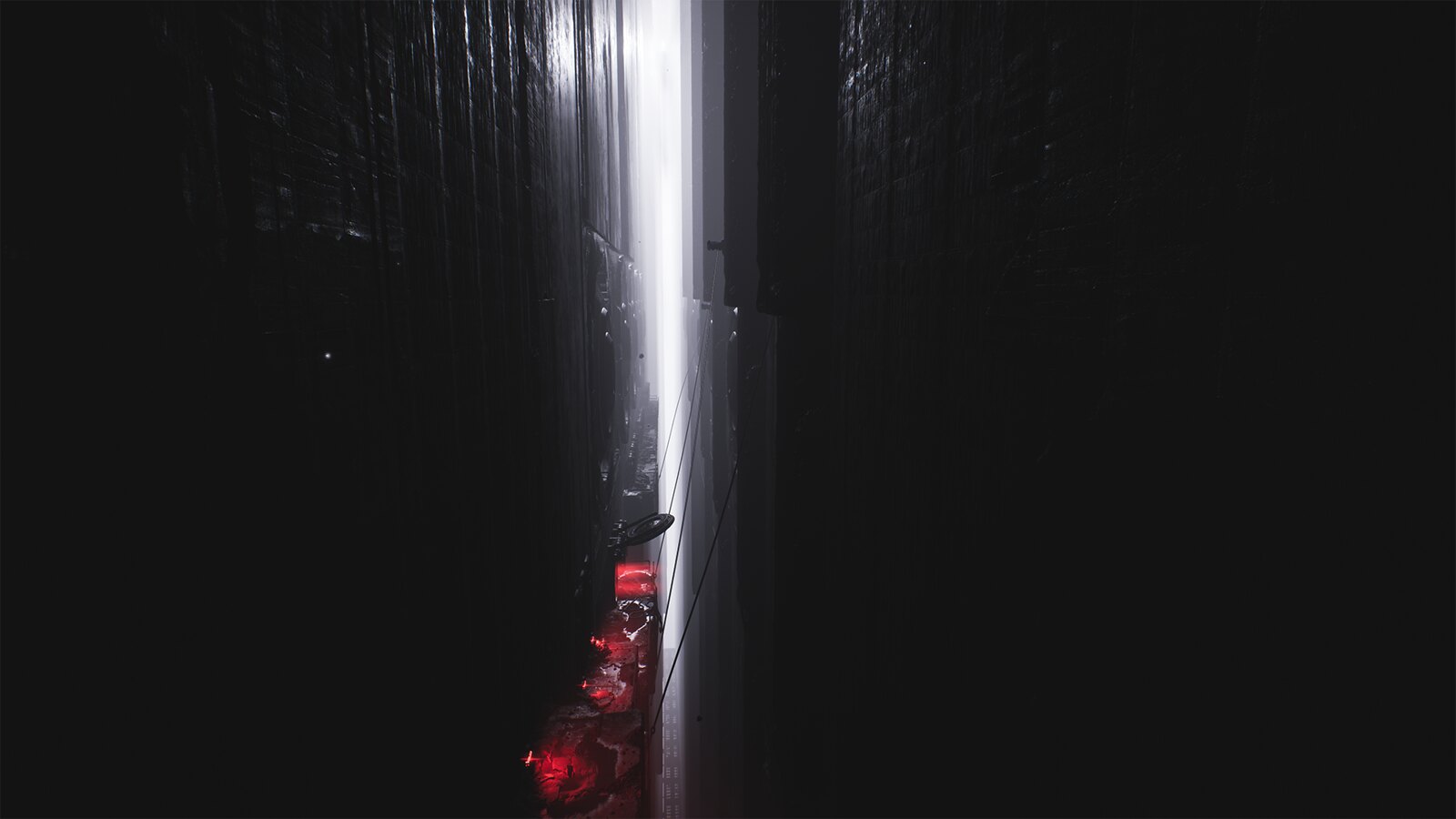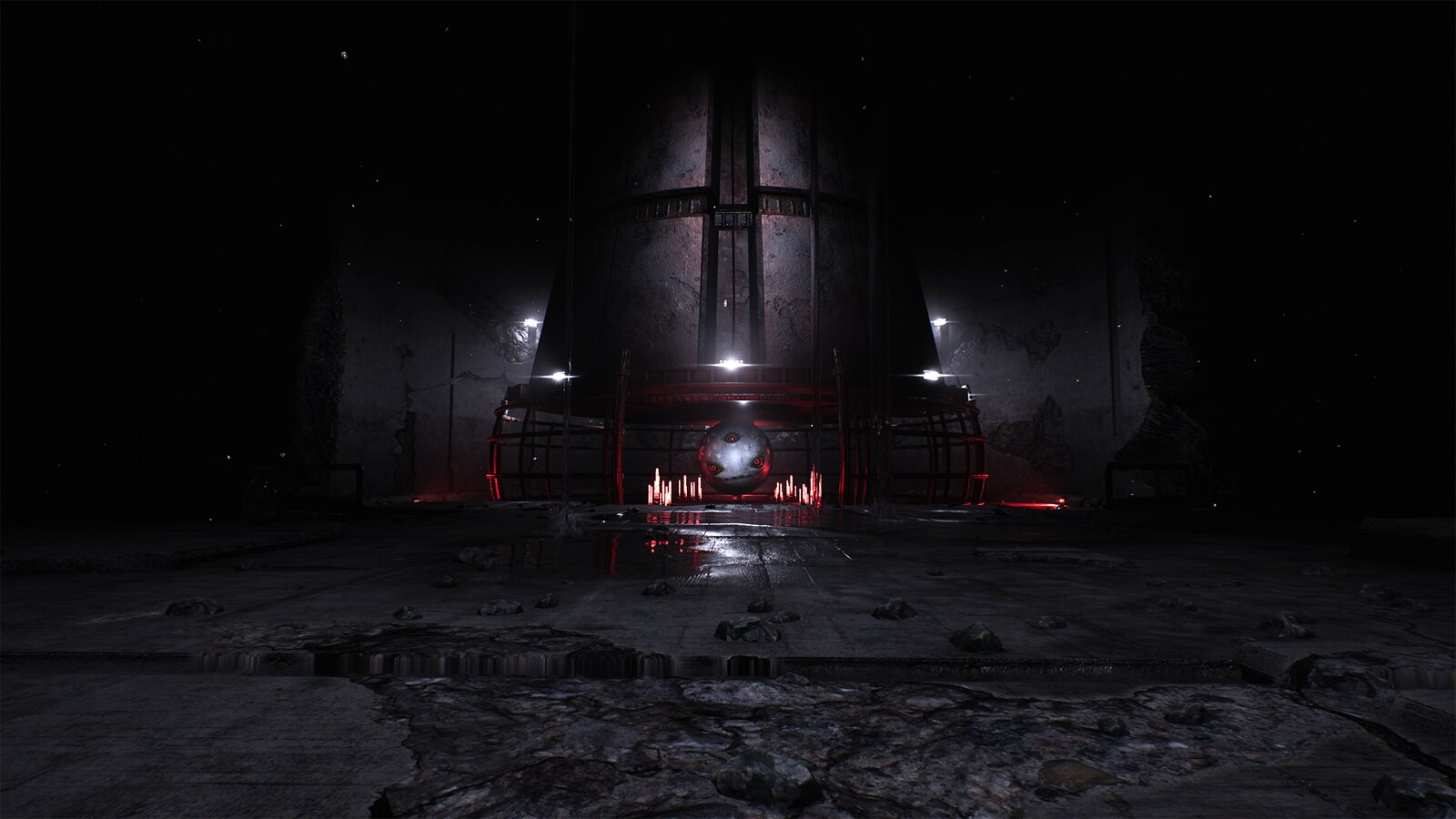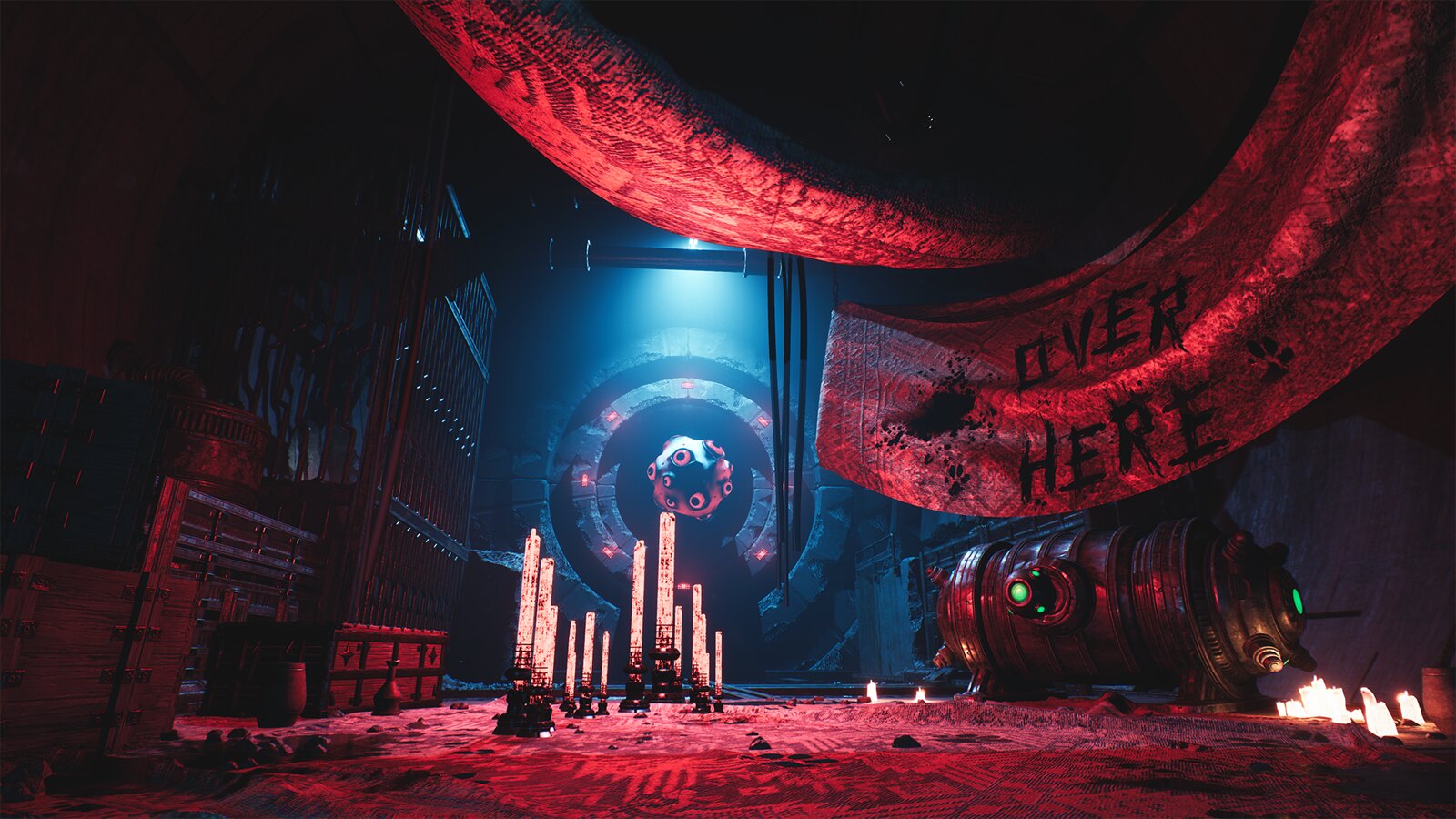Products You May Like
From the very inception of the world that would come to be known as Luna Abyss, there has always been a clear vision. Bonsai Collective’s Art Director Harry Corr, and Creative Director Benni Hill, set out with a grab bag of influences and a set of aesthetic and narrative waypoints which underpinned the worldbuilding in its early stages. That vision remains integral to the game we have created.
Caption: Tsutomu Nihei’s Blame! was a major influence on our art style and level design
Building the world of Luna Abyss has been a process of extrapolation – building outwards from carefully defined core concepts, expressed in early level blockouts and key narrative beats, a core cast of characters to bring those beats to life. All good construction needs a solid foundation; ours was a sprawling brutalist megastructure, a sky within a moon, sufficiently strange as to pique the imagination. How did we get here? Where is here? These are the questions our protagonist asks, and who better to answer than an omnipresent disembodied head…?
Caption: Beyond the decaying halls of Sorrow’s Canyon lies a vast alien landscape for Fawkes to navigate.
So how do you take something as vast as an alien moon and scale it down enough to understand where your characters fit, and how best to tell their story?
“We started with the cell,” says Lenny Ilett, a character designer at Bonsai Collective. “The game revolves around the axis of the cell, so it was pretty important to define those characters in the cell so we have something to work from.” For our primary characters – protagonist Fawkes, and their prison warden Aylin – the cell is the site of their most important interactions. It’s also a space of transition, literally and narratively – Fawkes returns here between missions to rest and process the events of the day. It was a useful waypoint in building the relationship between these two characters – how were they going to react to one another in this place of forced proximity versus out in the world, where their roles are more clearly defined?
Caption: Ellie: Lift guardian, train conductor, poet.
For the most part, building our characters was a back-and-forth process between the art team and the narrative team. Fawkes and Aylin were defined early on in the process, as the key characters in the story, but over time, and as the world grew in scale, it became necessary to expand our cast in order to tell the story we wanted. Here, art and story worked hand in hand. An example of this is Urien Caldecott, dubbed “axe cat” by the internet, who existed in concept for quite some time before receiving the character design treatment. Lenny describes the process of visualizing a character as chipping away at a block of marble, revealing the character in increments based on their dialogue, or their backstory. “You’re bringing words on a page to life,” Lenny says, of Urien, “but what does that look like? That’s something you have to navigate.”
Caption: The mysterious Waif is the first person you’ll meet in the Abyss – but not the last.
This process exists in parallel, too. Some of our NPCs began life as basic character models; biomechanical wardens, much like the one Fawkes inhabits, which come in a variety of weird and wonderful shapes. Lenny explains that these wardens emerged from a process of continual iteration; back-and-forth between character design and animation, ensuring that the designs were actually feasible in three dimensions. For this, the designers often looked to the natural world for inspiration. Lenny gives the example of a particular warden which originally had human-like legs, but ended up with a structure more akin to a kangaroo, the better to maintain balance. Similarly, Animator Marie Trystad mentions looking at the way snakes move in order to animate Aylin’s uncannily long neck. This in turn inspired the sound design; a particular character the player will encounter in the Meadows is a glorious amalgamation of ideas from across the team, brought to life by Marie, and given even more personality by Sound Designer Sarah Sherlock. In this way, our characters have truly been a team effort.
Caption: Environmental storytelling allows us to shed further light on the world of the Abyss.
Part of the process of making our NPCs feel like living, breathing people who populate a world that is vast and lived-in, beyond the limits of Fawkes’ scope and perception, was bridging the conceptual gap between the machine and the human soul within. It was important to us to give these characters their own self-contained stories, which intersect with Fawkes’, but nonetheless give a sense of a world beyond that which the player experiences directly. In assigning models to these characters, we then found ourselves in a situation where it seemed necessary to understand why they were in these particular wardens – which traits might lead a person to being assigned one type over another, and what this meant for the characters. It was from this core question that we ourselves began to understand more about the world we’d created. The results of this can be seen threaded through the supplementary lore encountered in the game world.
Caption: Our art team rose to the challenge of representing the human soul trapped within the machine.
As these characters began to gain a life of their own, so it seemed important to make them visually distinctive – not just on a practical level, so they might be differentiated from the multitude of other wardens across the Abyss, but also because it seemed reasonable that these individuals, with their own personalities and identities, would seek to individualize their own appearance in some way. This was the most important point of collaboration between the story and art teams. I had an ongoing dialogue with Animators Waseem Shaheed and Marie Trystad, exchanging questions and backstories to gain a greater understanding of who these characters were, and by extension, how they might move; this in turn influenced the personalities of these characters, which became more clearly delineated in the way they held themselves, or in the subtleties of their motion. Similarly, I worked with Lenny and Art Director Harry Corr to develop visual shorthands, within our limitations, to express elements of personality through appearance; working from the understanding that these characters, by virtue of being trapped inside biomechanical bodies, would find ways to customize them to their liking.
We had always intended to create a cast of characters with diverse identities. Our protagonist, Fawkes, is nonbinary; we chose to present this quite simply as a fact about them, without posing it as an issue to be discussed or a dilemma to be pondered. We chose to include a variety of ethnicities, sexualities and gender identities among our cast to reflect the lived reality of those at the studio; it was important to us to normalize all of these things and weave them into the fabric of the world, which also included casting voice actors to authentically represent those characters. From a visual perspective, we faced the challenge of how to signpost certain elements of these identities in a way that felt realistic, given the limitation of the nonhuman warden bodies. In other cases, we decided to play with the cognitive dissonance of – for example – two cisgender male characters housed in feminine-coded bodies. Ultimately, we allowed the characters themselves to guide our hand.
Finally, we also created a library of lore entries, which the player discovers as they progress through the game. Collecting these will build a codex of entries, which act as an archive rather than an exhaustive encyclopedia; letter, diary entries and other windows into life on Luna, adding context to the events Fawkes experiences. The end result, we hope, will be a glimpse into a world which collapsed two hundred years before Fawkes ever set foot on the blood moon.








